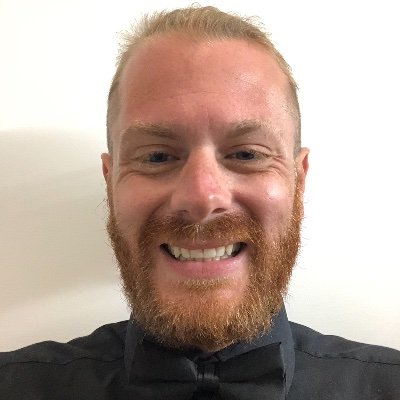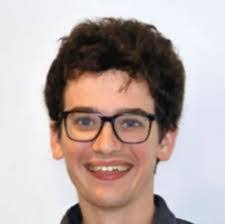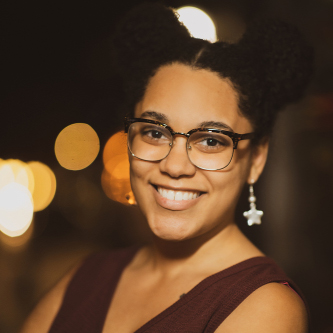The Silver Beach Institute is a new research organization working to 100x the number of top-tier scientists in the
world. We initially ran small, intensive, web-based research courses during which 18-20 students with diverse
backgrounds and varying levels of experience were immersed in a particular topic, engaging with both seminal and
cutting-edge research work in order to start substantive projects of their own. These courses lasted between 5 and
16 weeks, and were built around semi-structured discussions led by an academic researcher or leading industry
practitioner doing important work in their field. We are now working on combining this structure with a lightweight
mechanism for funding new researchers with no previous published work.
To get notified about new programs and funding opportunities from the Silver Beach Institute, enter your email
address below:
We are not a university, nor are we affiliated with any university. Students do not receive any credential, degree,
or official certificate at the completion of a course. The point of our courses is to put people on the path to
doing original work of their own, not to certify that they've learned facts in a curriculum.
If you have questions, feedback, or suggestions, feel free to email us at contact@silverbeach.in.
Selected past courses
Introduction to Social Science Genetics
with Robbee Wedow (MIT & Harvard) and Andrew Grotzinger (Harvard Medical School & UT Austin)


Over the past several years, scientists have capitalized on newly-available molecular genetic data to explore connections between human genetics and many social and demographic phenomena. A notable example of this kind of work was the groundbreaking 2018 paper in the journal Nature Genetics authored by James J. Lee, Robbee Wedow (one of the course instructors), and others, that used a sample of over 1.1 million individuals to identify over a thousand places in the human genome that were highly associated with educational attainment. Other scientists have used the results of similar studies to demonstrate how genetic signatures for educational attainment predict social mobility into midlife. In this course, participants spanning the spectrum from high school students to PhDs collaboratively explored the frontier of work in this exciting area, then proposed novel research projects of their own.
Facts-based Fictional Worldbuilding
with Moiya McTier of Columbia University

From Lewis Carroll’s Through the Looking-Glass to Star Trek to Legend of Zelda, fictional worlds have entertained, educated, and comforted us for centuries. A fictional world might be a universe that obviously differs from our reality because it has magic or advanced technology. It might also be a world where the differences are more subtle. One way or the other, they all take time and effort to build. Participants in this course used scientific reserarch to inform the creation of novel, logically coherent, and believeable imaginary worlds.
Our educational philosophy
Our research-course based approach comes from the fact that most of our team's best learning experiences have come
from being immediately immersed in detailed discussions of work in a field we're interested in, then starting small
research projects as a way of engaging more deeply with the field's methods, conventions, and literature.
Somewhat counterintuitively, we've found that this can work well even for students who come in without a lot of
background in the field — once intense interest in a particular topic is sparked, or a research project is
begun, it is usually possible to work backwards to the necessary fundamentals using online resources such as free
textbooks and course videos, as well as by asking questions to slightly more advanced peers.
We think that this kind of learning experience is among the most effective ways to put people on the path to doing
substantive new work of their own that advances the frontier of human knowledge, which we see as the ultimate goal
of all education.
Unfortunately, these sorts of research courses are not widely available to students outside of research
universities, and in many cases are not open to even undergraduate students at such universities. That’s where we
come in: the Silver Beach Institute exists to democratize access to learning experiences of this kind. Our courses
are centered around semi-structured instructor-led discussions, ambitious student projects, and the forging of
intellectual & social bonds across backgrounds and disciplines. We hope that these courses, which are each
taught by a researcher or practitioner who is actively doing important and exciting work on the topic they teach,
will seed a distributed research community where our heterogenous group of students can learn from each other and
collaborate on substantive projects that make significant positive contributions to human society.
The Silver Beach Institute is led by Soham Sankaran (twitter, personal website), who is the founder of Pashi, a Y Combinator-backed technology startup, and is on leave from the PhD program in Computer Science at Cornell. He is also the host of Segfault, a podcast about Computer Science research, and the editor of Honesty Is Best. Soham can be contacted at soham@silverbeach.in.
Sahaj Sankaran, an independent history and policy researcher in Mumbai, India, is our Director of Outreach. He has a bachelor's degree in History and South Asian Studies from Yale, and specializes in the sociopolitics of in India in the post-Independence and Cold War eras. Sahaj can be contacted at sahaj@silverbeach.in.
Day-to-day operations are spearheaded by Saaketh Tirumala, a third-year Economics undergraduate at UCR. Saaketh can be contacted at saaketh@silverbeach.in.
The Silver Beach Institute is not a university, nor is it affiliated with any university, and does not grant degrees, official certificates, or credentials of any kind.